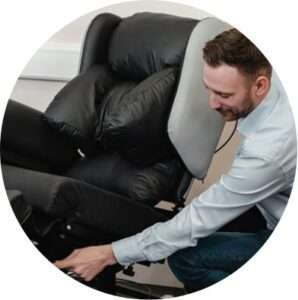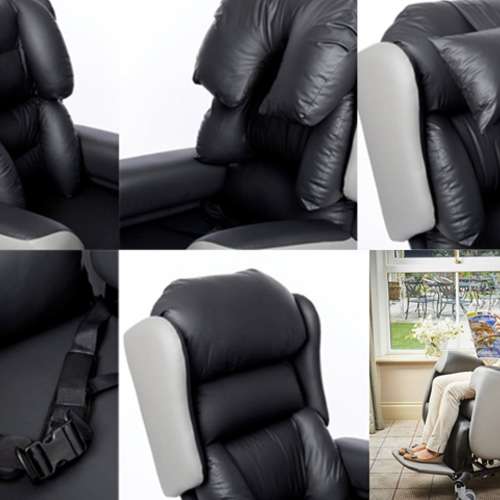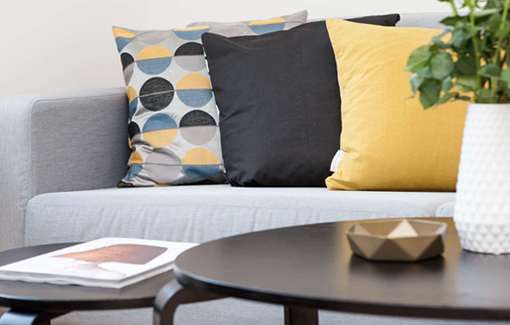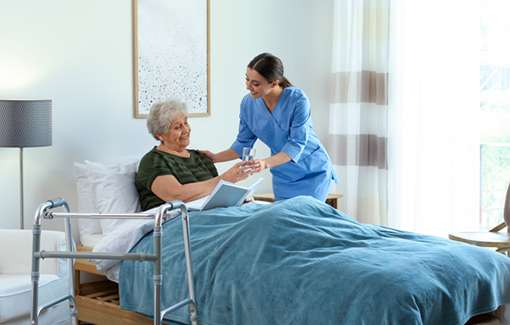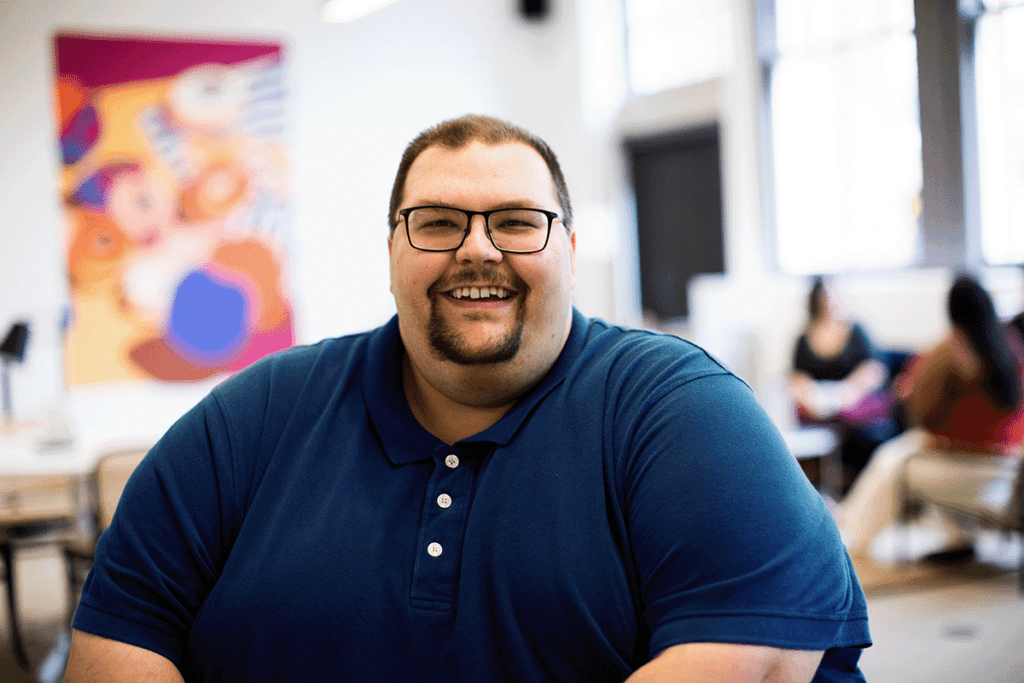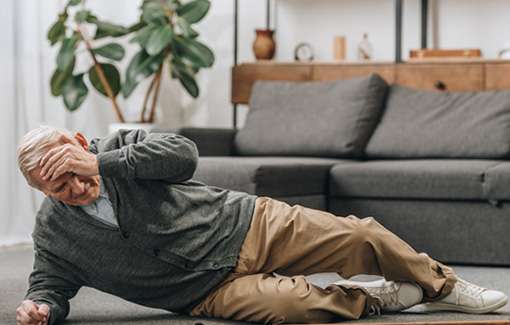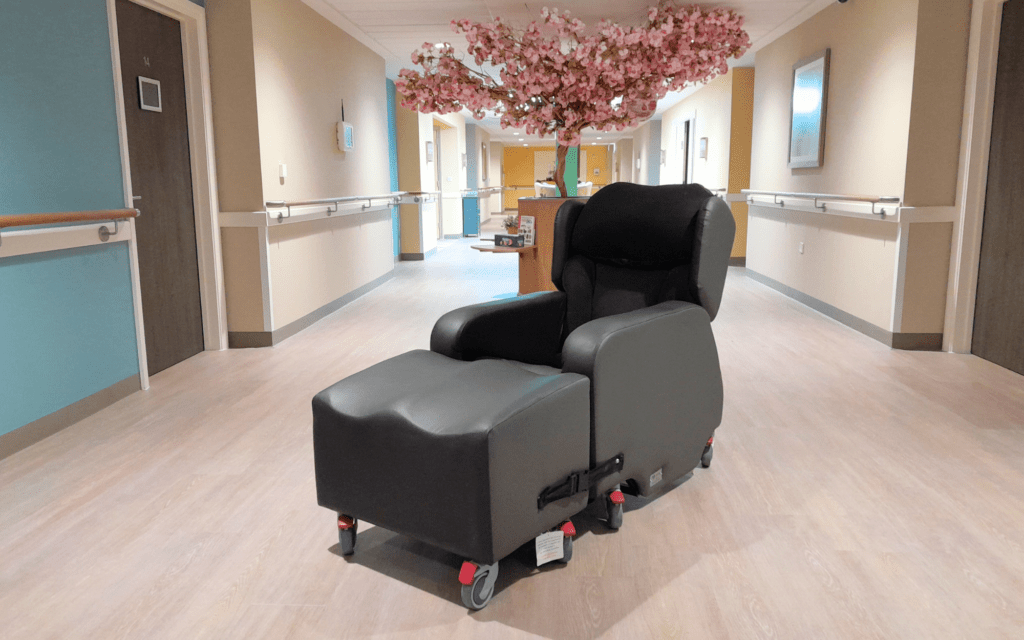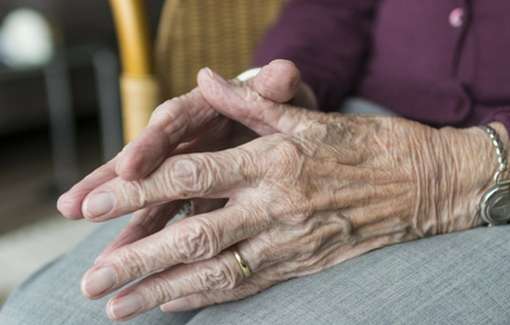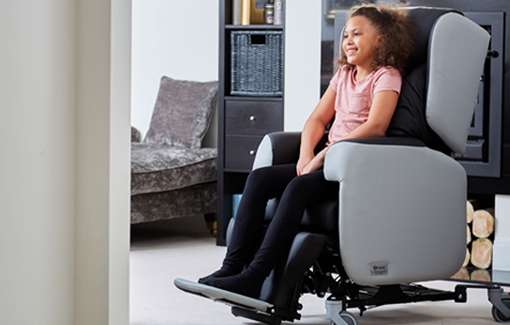This series of articles is dedicated to looking at the role that specialist seating accessories play in helping patients with different conditions. In this article, we look at patients in rehabilitation wards and which seating accessories are best for them.
Jump straight to…
Clinical needs of Rehab Patients
Rehabilitation wards deal with a range of different needs and help patients recover before discharge, therefore playing a key role in helping to reduce hospital discharge times.
More specialist rehabilitation wards are available to help those with more complex needs, and this article has a particular focus on neuro rehabilitation.
Neuro rehab wards help patients adapt to normal daily activities who have neurological disorders (see our previous articles on stroke/MND/MS) or acquired brain/spinal cord injuries. Treatment is normally provided by a cross-section of healthcare practitioners such as speech therapists, OTs, physios and neuro psychologists.
The Glasgow Coma Scale (GCS) is used to measure the severity of acquired brain injuries. CT or MRI scans are used to assess the physical extent of brain damage and what areas of the brain have been affected.
Seating Accessories available
We have listed some seating accessories that are helpful for patients undergoing neuro rehab, and which chairs they belong to.
Finding the Right Chair
The Lento Care Chair is ideal for higher-need rehabilitation such as TBI patients (Traumatic Brain Injury) who have a high GCS and limited movement. It has a great range of lateral support options, removeable sides to make transfers easier, and is all round a simple chair to use for all involved.
The Lento Riser Recliner is ideal for rehab wards, as it is hoist compatible, has tilt-in-space to reposition the patient, and a lateral waterfall backrest.
The Prospec Hospital chair is excellent rehab chair with a graded stand feature, where the tilt and rise operate as separate movements, helping patients to gradually improve their confidence when standing.
Conclusion
Higher need patients in neuro wards can benefit a great deal from having extra support built into the chair. We hope this helps inform your choice of seating when considering the needs of patients on rehab wards.
If you would like more information or want to discuss your current needs with us please contact our team:



